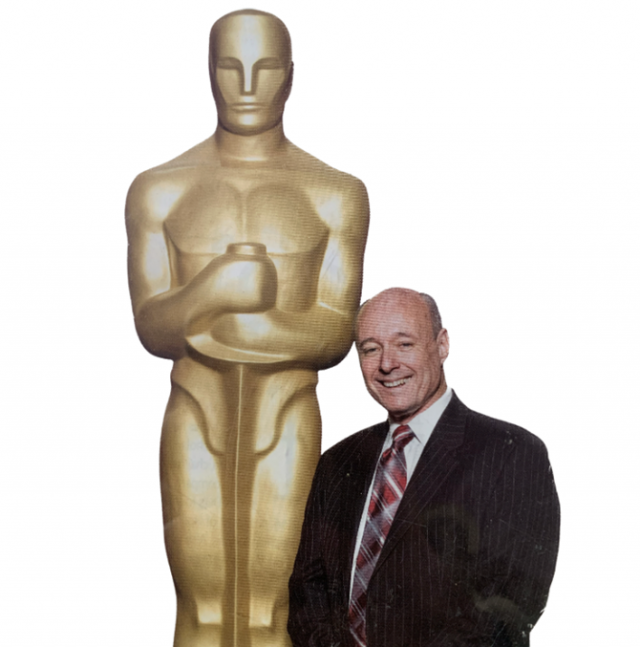In the heart of the bustling entertainment industry, imagination meets reality, and stories come alive on the silver screen. It’s a world that screenwriter Alan Roth knows intimately, navigating the intricate web of storytelling with finesse and creativity. Today, we have the privilege of delving into Alan’s experiences and expertise, gaining insights into the captivating craft of screenwriting.
An In-Depth Discussion with Alan Roth on Screenwriting
Was screenwriting a career you always wanted to pursue?
“I always wanted to be a writer, and my original dream was to be an author of fiction. But when my ‘big’ idea came, I envisioned it as a movie, and wrote it as a screenplay. That was Jersey City Story.”
Alan Roth’s journey into screenwriting began with a vision, a realization that his stories belonged not just on the pages of a book but on the dynamic canvas of film. From the onset, his passion for storytelling propelled him forward, laying the foundation for a career marked by creativity and innovation.
What’s your process when it comes to structuring a script?
“For me personally, I write a detailed beat sheet or outline which can sometimes be longer than the script itself. That way I have a blueprint to work with. For example, when adapting The Book of Leah, my outline was much longer than the original source material.”
Structuring a script is an art form in itself, requiring meticulous planning and foresight. Roth’s approach involves crafting a comprehensive outline, a roadmap that guides him through the intricate twists and turns of the narrative landscape. This meticulous attention to detail ensures that every scene serves a purpose, every beat resonates with the audience, ultimately weaving a cohesive and compelling story.
Has your writing process changed since you first started out?
“My writing process has evolved since I first started. The main change is that I now write with producers, and the marketplace in mind.”
As with any craft, growth and evolution are inevitable. Over the years, Alan’s writing process has undergone several transformations, adapting to the ever-changing landscape of the industry. Collaboration with producers and an awareness of market trends have become integral aspects of his approach, ensuring that his stories resonate with both audiences and industry professionals alike.
You’ve worked on a lot of book adaptations. How do you determine if a book is worth adapting for the screen?
“A book should be adapted for the screen if there is an audience for it. Otherwise, even if it’s a great story, there’s no point in adapting it. It must have the potential to find a community of viewers.”
Adapting a book for the screen is a delicate balance between artistic vision and commercial viability. Alan’s discerning eye seeks out stories that not only captivate but also have the potential to resonate with a wide audience. It’s not just about translating words into images; it’s about capturing the essence of a story and bringing it to life in a way that engages and inspires viewers.
When you are starting to adapt a book for the screen, where do you begin?
“My first step is to do a very close reading of the book. As I do, the screen adaptation starts to crystallize in my mind.”
The journey of adaptation begins with a deep dive into the source material, a process of immersion that allows Alan to uncover the essence of the story. Through careful analysis and reflection, the screen adaptation takes shape, with each page of the book serving as inspiration for the cinematic journey ahead.
What does the creative collaboration process involve for you when adapting an author’s book?
“I share the script as a work in progress with the author or producer along the way, reviewing their notes and making any adjustments necessary.”
Collaboration lies at the heart of the adaptation process, bridging the gap between author and screenwriter, vision, and execution. His collaborative approach involves open communication and receptivity to feedback, ensuring that the spirit of the original work is preserved while embracing the unique demands of the cinematic medium.

What advice would you give to aspiring screenwriters?
“The most important thing is to read scripts. Learn formatting, structure, and of course how to tell a story on the screen. There are many helpful reference books, but nothing beats going to the source and reading screenplays.”
For aspiring screenwriters, knowledge is key. Alan’s advice emphasizes the importance of immersing oneself in the craft, studying the nuances of screenwriting through exposure to scripts and real-world examples. It’s a journey of learning and growth, where each screenplay read is a lesson in storytelling and cinematic expression.
How can a screenwriter break into the industry without any experience?
“The best way for a screenwriter to break into the industry is to enter your best work into prestigious screenplay competitions, For example, I won the Nicholl Fellowship, and that brought me to the attention of producers.”
Breaking into the industry can be daunting, but perseverance and determination can pave the way to success. Alan’s own journey serves as a testament to the power of talent and tenacity, with prestigious screenplay competitions providing a platform for recognition and opportunity.
What subject matter are you drawn to?
“I’m interested in a wide spectrum of subject matter, and specifically drawn to memoirs, historical fiction, and true-life stories.”
The realm of storytelling is vast and varied, with each genre offering its own unique tapestry of narratives. Alan has eclectic tastes in subject matter, reflecting his curiosity and passion for exploring diverse worlds and perspectives.
What do you do when you are not busy screenwriting?
“When I’m not writing, I am an adjunct professor of screenwriting at Fairleigh Dickinson University. So, when I’m not busy screenwriting, I’m teaching it!”
Beyond the confines of the writing desk, Alan’s dedication to the craft extends to the realm of education, where he shares his expertise and passion with aspiring screenwriters. As an adjunct professor, he imparts invaluable knowledge and guidance, nurturing the next generation of storytellers with wisdom and insight.
Wrapping Up
In conclusion, Alan Roth’s journey as a screenwriter is a testament to the power of creativity, collaboration, and dedication. Through his experiences and expertise, we gain a deeper understanding of the art and craft of screenwriting, discovering the nuances and intricacies that shape cinematic storytelling. As the curtain rises on his next cinematic masterpiece, we eagerly await the magic that unfolds on the silver screen, a testament to the enduring legacy of Alan’s talent and vision.









